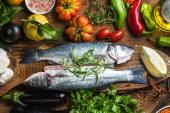Vegan Soul Food Study Raises Interesting Questions About ‘Healthy’ Diets
Vegan participants had weight and cholesterol changes similar to those on a low-fat diet that allowed meat, eggs, and fish.

In Black individuals, a dietary intervention that incorporated vegan soul food failed to make an impact on body weight and lipids compared with a low-fat diet that included meat and eggs, but the findings may offer clues to healthy eating for those who can’t or won’t go vegan.
“The results were a little depressing, to be honest,” lead author Gabrielle M. Turner-McGrievy, PhD, RD (University of South Carolina, Columbia), told TCTMD. Her study, called Nutritious Eating With Soul (NEW Soul), partnered with local restaurants and chefs to teach individuals how to cook plant-based takes on traditional soul food staples. The researchers then followed the participants and compared their progress with Black individuals randomized to the low-fat group.
At 2 years, no differences were seen between groups in weight changes, total cholesterol, or LDL cholesterol, according to the results, published last week in JAMA Network Open.
One reason for thinking the vegan group would see more-dramatic changes is evidence supporting the health benefits of a plant-based diet in Black individuals, much of which comes from studies of Seventh-Day Adventists, a Christian denomination whose adherents typically follow a “biblical diet” that contains little to no meat or dairy. In one study, Black Adventists had 36% lower rates of all-cause mortality and 30% lower rates of cancer compared with the general Black population. Similarly, another study found that Black Adventists who were vegan or vegetarian had lower rates of hypertension, diabetes, total cholesterol, and LDL cholesterol than Black Adventists who ate meat.
The results were a little depressing, to be honest. Gabrielle M. Turner-McGrievy
To TCTMD, Turner-McGrievy said the high quality of the low-fat comparison diet used in the study, although it allowed for minimal meat and eggs, may have made it more difficult to see improvements in the vegan group.
“I think we ended up making our omnivorous group very plant-based with our recommendations,” she said. “In hindsight, we probably should have differentiated the diets a little bit more.”
But, Kim Williams, MD (University of Louisville, KY), a past president of the American College of Cardiology and a plant-based eating advocate, put a more optimistic spin on the results, saying the good outcomes in the comparison diet group are actually quite pertinent to patients with CVD.
“As a practicing cardiologist, I can tell you that people want to follow a whole food, plant-based diet when I recommend it to them, but sometimes they say they just can't,” he said. In those cases, Williams tells patients that the question becomes “how low can you go” in terms of limiting meat and dairy to improve overall health and lower mortality risk. Data needed to address that question, he added, are minimal and murky.
According to Williams, the comparator diet in Turner-McGrievy’s study therefore adds important granular information about how much low-fat dairy, eggs, fish, and meat individuals can maintain in their diet and still have cholesterol ranges and body weight comparable to those of vegans.
“My focus will always be on avoiding animals and refined grain as much as possible, [but] this data says that although the LDL was lower in the vegan group, it didn't reach statistical significance [and] it just didn't matter because the other diet was healthy, which is really good,” Williams added. “When I’m confronted with a patient who tells me they’re not going to stop smoking and not going to go on a vegan diet, which is something I hear a lot from my patients, I now have some data that I can use to guide them.”
COVID Impact and Other Risk Markers
For the study, Turner-McGrievy and colleagues randomized African American adults (median age 48 years; 79% female) with a body mass index of 25 to 49.9 kg/m2 to a healthy soul food diet plan that was either vegan (n = 77) or low-fat omnivorous (n = 82). The vegan group was asked to eat whole plant foods such as fruits, vegetables, beans, and whole grains and to limit processed fats and oils in favor of healthy fats like nuts, seeds, and avocados, while also avoiding meat, fish, poultry, eggs, and dairy. Those in the low-fat group were advised to limit their animal protein intake to no more than 5 oz of lean meat per day and no more than two egg yolks per week. They also were encouraged to base meals around low-fat dairy, fish, fruits, vegetables, legumes, and whole grains.
Participants in both groups received similar behavioral interventions that started with weekly classes of hands-on cooking demos and recipes for 6 months, and then transitioned to biweekly and monthly classes. They also had access to a private Facebook group and to biweekly podcasts and newsletters on nutrition. The percentage of weight loss was similar in both groups at 12 months and 24 months, with the greatest loss in both groups peaking at 6 months.
As a practicing cardiologist, I can tell you that people want to follow a whole food, plant-based diet when I recommend it to them, but sometimes they say they just can't. Kim Williams
Like many studies, the NEW Soul trial was impacted by COVID-19, both in terms of being able to interact in person with the participants and in the sense that the Black community, in general, is recognized to have borne the brunt of the pandemic, accounting for nearly 60% of all COVID hospitalizations recorded in the American Heart Association’s COVID-19 CVD Registry.
For post-hoc analyses, patients randomized to the vegan soul food intervention or the low-fat diet were further divided into cohort 1 (weight assessed pre-COVID-19) and cohort 2 (weight assessed at the onset of the COVID-19 pandemic).
“We do see differences between the first cohort at year 1, where we didn't have COVID, and then the second cohort. There's a big difference in that you see people in the second cohort started regaining a lot of weight during that time,” Turner-McGrievy said. Some of that is likely attributable to documented lockdown inactivity, which saw many decreasing their exercise habits, becoming more sedentary, and often struggling with their emotional and mental health.
She and her colleagues are currently working on additional analyses of the groups, including a deeper look at outcomes by adherence to the randomized diet.
Williams said it also would be of interest to know how the low-fat diet used in the study impacts newer risk markers, including the novel gut microbiome-related metabolite trimethylamine-N-oxide (TMAO), which has been implicated as a mechanism linking CVD and red meat consumption.
“Another thing with regard to the low-fat diet in this study that bears further consideration is looking at the impact on C-reactive protein, [because] the EVADE-CAD trial made clear that on a low animal, but not absent animal diet, your C-reactive protein does not go down, but it does go down on a vegan diet,” he added.
L.A. McKeown is a Senior Medical Journalist for TCTMD, the Section Editor of CV Team Forum, and Senior Medical…
Read Full BioSources
Turner-McGrievy GM, Wilcox S, Frongillo EA, et al. Effect of a plant-based vs omnivorous soul food diet on weight and lipid levels among African American adults: a randomized clinical trial. JAMA Netw Open. 2023;6(1):e2250626.
Disclosures
- Turner-McGrievy reported receiving grants from the National Institutes of Health during the conduct of the study.
- Williams was an early consultant on the methodology used in New Soul, but was not involved in the trial.





Comments